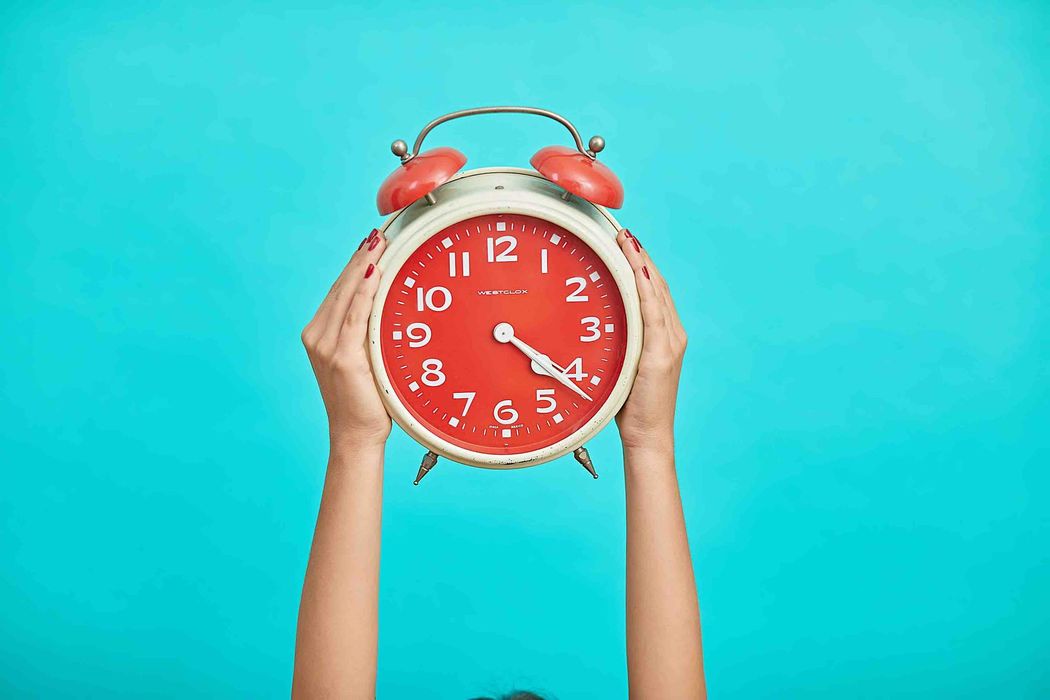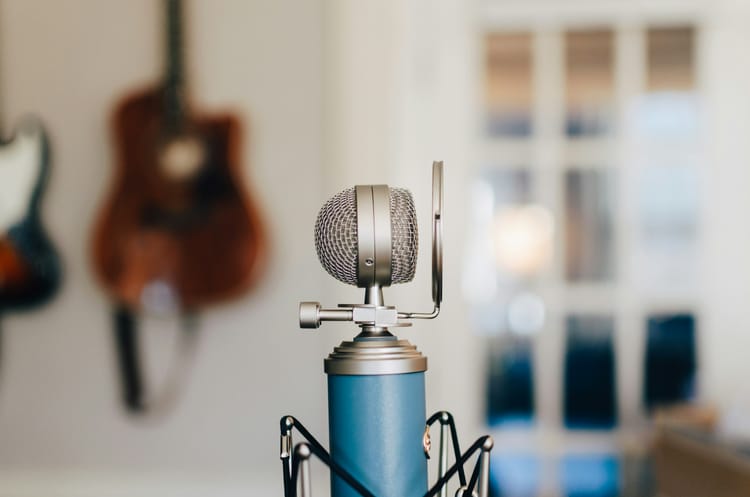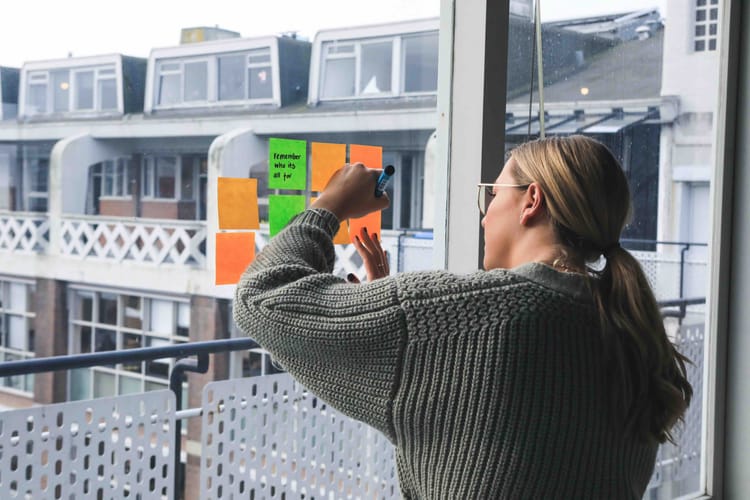If you’re currently faced with the dilemma of ‘how long should my podcast be??’, you’re certainly not alone.
It’s a tricky question, and one that doesn’t have a definitive answer. That’s because every show is unique. Whether it’s context, genre, or listener intent, there are lots of variables involved.
Stick with us for a short while, and we’ll take you through everything you should consider to help you find the right episode length for your show.

Book Your Next Podcast Guest the Easy Way
With more than 70,000 members, MatchMaker.fm is the largest online community connecting podcasters & guests.
Join MatchMaker todayWhat’s the Ideal Podcast Episode Length?
There is no right or wrong answer when it comes to deciding how long your podcast episodes should be. It’s subjective to the context of the show - some will naturally need more time than others. For example, if yours dives into a different conspiracy theory each week, chances are you’ll need longer episodes than a daily news bulletin podcast does.
Make your episodes as long as they need to be, and not a second longer.
The only fixed rule is that episodes should be as concise as possible. If you can cut them down without compromising the quality of your content, then do so. People value their time and have little tolerance for meandering stream-of-consciousness riffs. So make your episode just as long as they need to be to get your point across. and not a second longer. This makes sure that everything is as sharp as possible, which can have a big impact on listener retention.
What’s the Average Episode Length?
Again, the average episode length depends on the genre of the content. There’s a natural need for some podcast episodes to be longer than others.
That being said, there are a few things to consider outside of genre and context. Based on a study carried out by Pacific Content of more than 19 million episodes from 600k different podcasts, the mean average podcast episode length is:
41 minutes and 31 seconds
Sounds quite long, right? This does however include a couple of anomalies. One of the accounted for podcasts was 11 hours long, and another was a mere second. So if you set those special cases aside, the same study found that the median average length was:
36 minutes and 34 seconds
That gives us a good benchmark time to aim for. But if you can cut yours down to be shorter than the average, without losing quality, you’ll have the edge.
Noticeable Trends in Listener Behaviour
Familiarising yourself with what your listeners are doing whilst engaging with your content is key for figuring out your ideal podcast episode length.
Do they consistently tune in on the daily commute? In the shower? On a dog walk? There are many different scenarios in which people choose to listen to podcasts.
The daily commute to work is one of the most popular windows to listen to podcasts (obviously this changed during the pandemic when most people were working from home, but things have since shifted back). Seeing as though 65% of US listeners consume podcasts from their smartphone or tablet, this should come as no surprise.
The average work commute time in the US is 27.6 minutes
Edison Research also found that only 25% of listeners are actually sitting down with a laptop or computer. This signals that podcast episodes should prioritise catering to out-and-about activities, like the commute. The US Census Bureau reports the average work commute to be 27.6 minutes (one way), so aiming to wrap your episodes up in a similar time is a good place to start.
This is all good and well, but don’t worry too much about specific time frames. If you think your episodes need to be a bit longer, listeners always have the option to pause and resume later.
How to Work Out the Best Length for Your Episodes
We wouldn’t recommend restricting your episodes to a specific X minutes and Y seconds. Consistency is great, but too much can do more harm than good. That being said, you can definitely work out a rough figure to aim for.
Have a think about the following 3 pointers when finding the right length for you and your podcast.
Define Your Content’s Purpose
What do you want your podcast to achieve? Having a clear idea can be a big help when choosing the right episode length. For example, if you’re a podcast that teaches various languages, you might want to think about keeping episodes short and snappy. This can help to retain your audience’s attention. On the other hand, if you're interviewing guests, longer episodes often make more sense.
Consider Your Publishing Schedule
If you’re planning on releasing multiple episodes per week, keeping each one relatively short will (hopefully) wet the listener’s appetite and keep them coming back for more. Longer episodes immediately demand more time from the listener, which can be quite off-putting if you’re asking them to listen to two or more per week. In contrast, if you’re thinking about releasing weekly episodes, making them longer is more acceptable.
How Much Time Can You Spend?
It’s equally important to figure out what works for you, the host, as it is for the listener. You're the one recording and editing the episodes. And you need enough time to do a good job each week. If you can only realistically commit to 10-minute episodes, that's fine. Don't over-commit and fail to stick to your publishing schedule due to time constraints.
Should ALL My Episodes Be the Same Length?
It’s true, consistency is key to success in podcasting. You should always aim to make your episodes roughly similar in length. Not doing so can be jarring from the listeners perspective. For example, if your new episode is 30 minutes longer than the previous one, you might put some listeners off.
Again, we’re not saying that each episode should be the same amount of minutes and seconds as the last, but if you can keep them all in a similar ballpark, you’ll have a much better chance at building a dedicated listenership. People like it when they know what to expect from a particular show.
How Long Is Too Long?
It's only really celebrities and those with pre-existing audiences that can get away with marathon episodes (*cough* Rogan *cough*). Unless you fall into one of those two camps, we strongly advise against creating 60+ minute episodes.
Try not to cross the 1-hour mark.
Very few non-celebrity podcasts have episodes longer than this because that amount of time is quite demanding on the listener. So if you’re just getting started with a brand new podcast, it’s usually best to remain humble and not demand huge chunks of time right out of the gate. That way, new listeners will be more likely to give you a try.
3 Ways to Gauge Listener Satisfaction
If you’re thinking about changing the length of your podcast episodes, keeping an eye on your stats and checking in with your listeners is useful. Doing so will give you a feel for their expectations and satisfaction level. Here are 3 ways to do it.
1. Take Polls on Social Media
Social media has many uses. And one of them is that it makes it easy to keep in tune with the needs and wants of your followers. Take Instagram’s poll feature for example, which lets you ask your audience questions. If you pose a specific query and provide some tick box answers, chances are they’ll click the one they most agree with. To give you an idea, below is a handful of questions that you could ask your followers:
- How long do you spend listening to podcasts per week? [Provide options]
- Would you like to see longer episodes of the X podcast? [Yes / No]
- What are you typically doing when listening to podcasts? [Provide options]
- Do you prefer shorter or longer podcast episodes? [Shorter / Longer]
You get the jist. But if you can get your followers to select the answer that suits them the most, you’ll get real-time results and immediate feedback. This will give you a good idea of how long they're prepared to listen for.
2. Use Spotify’s Episode Performance Data
Spotify has a great tool that lets you check up on your listener retention data of each individual episode. It’ll give you a graph that represents the average amount of time your listeners engage with each episode. And that includes the percentage of listeners that make it to the first, second, and third quarter, plus the amount of people who reach the very end. Pretty useful.
If you notice any trends in your retention data, like listeners always dropping off at the 25 minute mark, then you’ll have a great insight into what action you need to take in regards to your podcasting strategy.
In the below clip, Tim Ferriss, Entrepreneur and host of The Tim Ferriss Show, speaks about the advantage that examining your performance data gives you. He said:
By tracking your performance every week, month, quarter, or all of the above, you are ahead of 99% of the world who’s trying to start a business or podcast.
3. Carry Out Some Competitor Analysis
Another way of learning what your listeners are looking for, is to study what your competitors are doing. Preferably the leading ones in your chosen topic. If they’re offering something similar to you, but they do it in half the time, listeners will naturally be attracted to their content rather than yours. That may partly be because it’s quicker and more concise.
If other podcasters tend to make longer episodes than you do, but they still manage to pull in more downloads, try to identify why. What added value are they giving that makes listeners want to stick around for longer? Taking the time to really pinpoint your shortcomings can be key to acquiring a greater listenership.
So, How Long Should My Podcast Be?
You’ll hopefully now have a better idea of what you need to factor into your decision making process.
All in all, the point remains that context is key. It’s the most important thing to think about when working out the best episode length for your podcast. Always try to make your episodes as concise as you can, without compromising quality. And if you can successfully strike that balance, you’ll be off to a great start.

The #1 Podcasting Community
With more than 70,000 members, MatchMaker.fm is the largest online community connecting podcasters & guests.
Join MatchMaker today





